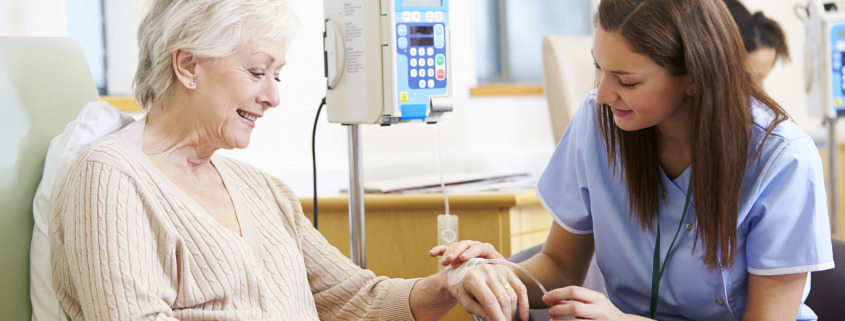How to Stay Safe During Chemotherapy in the Summer: Essential Tips
There’s never a good time to be going through cancer treatment, but the summer is especially difficult for those having chemotherapy, as the warm weather and bright sunshine can have a big impact on your physical and mental health.
These tips could certainly help cancer patients cope during the summer.
Avoiding direct sunlight
Chemotherapy comes with lots of side effects, one of which is photosensitivity when the skin is more sensitive to UV rays. Therefore, you need to be more careful when going outside, so you don’t harm your skin.
For instance, you should avoid being outdoors between 1000 and 1500 when the sunshine is strongest. When you do go out, make sure to wear a wide-brimmed hat, long-sleeved loose-fitting clothes, and a scarf under the hat if you have hair loss.
You also need to wear sunscreen of at least SPF30, making sure it has not expired and protects against UVA and UVB rays. Apply sunscreen to your lips as well, as these can become damaged by the sunshine.
Being outside for just a few minutes or on a cloudy day could cause you to burn and, subsequently, put you at greater risk of skin cancer, so it is important to protect yourself as much as possible.
Drink plenty of water
A hot day can dehydrate you far more easily, so it is essential to drink more water than usual when it is warm outside.
Lots of people who undergo chemotherapy may feel nauseous, or have bouts of diarrhoea or sickness afterwards, which means they are even more likely to be dehydrated. Alternatively, you might lose your appetite or mouth sores could make it hard to swallow. In these cases, you need to make sure you sip little and often, as you are at even greater risk of dehydration.
You might also want to do some things to reduce sickness, so it is easier to hold down food and water. These include avoiding fried foods, eating cold foods, avoiding filling up with large quantities of liquid, drinking ginger tea or orange ice lollies, and eating small meals and snacks instead of three large ones.
Some people find drinking fizzy drinks is easier and can help with the nausea.
As well as making sure you maintain water intake, it is also advisable to avoid being outside for too long, as you are likely to sweat and become dehydrated faster.
Use insect repellent
Insects come out in full force over the summer months, which is why it is essential to use repellent, especially if you have developed lymphoedema after receiving cancer treatment.
This is when a limb or parts of it starts to swell due to accumulation of lymph, a protein-rich fluid in the body.
If you get bitten or stung on the affected limb, this can increase the chance of having inflammation or getting an infection in the area.
As well as being extremely uncomfortable, it could also result in cellulitis, which is a bacterial infection in the deep layers of the skin. This needs to be treated with antibiotics, as it could become serious otherwise.
Wear sunglasses
It is also important to always use sunglasses with UV protection to keep your eyes safe when outside, and to seek shelter under shade where possible.
Some people develop sensitivity to light in their eyes following cancer treatment, which can make your eyes sore when looking at light.
Photophobia can also cause discomfort when going from a dark to a light area, such as from indoors to outdoors. This can become particularly bad in the summer when it is bright for several hours of the day.
To help cope with photophobia, it is wise to wear dark glasses, avoid direct sunlight, and, in some cases, use steroid eye drops.
Get plenty of rest
The most common side effect of chemotherapy is fatigue, with the treatment leaving people low on energy, sleepy and extremely tired.
This affects between 15 and 90 per cent of patients, according to Cancer Research UK, with this figure increasing to 75 per cent for those with advanced cancer.
Heat can exacerbate this tiredness, as it can make you feel drowsy and drained. According to the regional medical director at Duke Health in North Carolina, this is due to the body trying to cool itself down.
“Your body, especially in the sun, has to work hard to maintain a consistent, normal, internal temperature,” Scientific American reported Dr Casery as saying. It does this by dilating blood vessels to release heat and cool down and sweating.
However, these processes increase the heart rate and metabolic rate, which makes people feel tired.
Therefore, people who are already experiencing fatigue will find their symptoms worsen in the heat. Therefore, it is wise to make sure they get plenty of rest, avoid the hottest parts of the day, and allow yourself to recover at your own pace.


